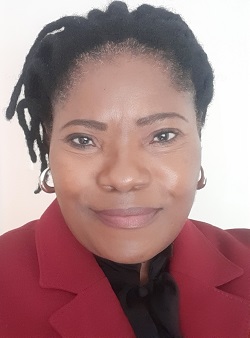As an expert in computer-integrated education and digital learning, Prof Mmankoko Ziphorah Ramorola firmly believes that, since learners in the 21st century are technology-savvy, they absolutely cannot be taught in the same way as learners before them. Whereas the children of today are – so to speak – born with digital competence, the same cannot be said about their teachers. This reality poses serious challenges in the contemporary classroom. Very few, if any, industries today can effectively separate their products and services from technology, and education is no exception.
With research interests that include technology integration in the curriculum, Mathematics and Science education in the Foundation Phase, teachers’ continuing professional development, and distance education and e-learning, Prof Ramorola is passionate about bringing synergy between the traditional and digital approaches to pedagogy. According to the White Paper on e-Education (2004), teachers and learners should all have been drawing on digital technology to meet learning outcomes by 2013. We are in 2022 and still this goal is far from being realised. Prof Ramorola is concerned with factors underlying this delay. Her current research focuses on teachers’ professional development and she has designed an intervention model to develop teachers’ knowledge on and skills in integrating technology with pedagogy and content.
She proposes the ADDIE model as a framework to analyse teachers’ technological challenges and needs, and to subsequently educate them on how best they can utilise the technology they have at their disposal for teaching and learning. The first step in this model involves administering a questionnaire to teachers to determine and analyse (A) their level of technological competence and gauge their technological needs. The analysis informs the design and development (DD) of an intervention to meet the these needs and aid teachers’ integration of technology with pedagogy and content. It involves instruction on and training in the use of six software packages.
Firstly, the teachers learn to use a word processor to assist them in creating documents such as assignments, tests, class notes, etc. Secondly, they master the use of a web browser to enable them to search for information online and to evaluate its relevance to lesson content. Thirdly, training in MS Excel aims to develop their skills in Mathematics (data handling, geometry) and Science (experiments) and equip them to draw graphs and present results. Training in MS Access further equips them with skills and knowledge relating to storing large data such as learner performance records, reports, etc. In order to create appealing presentations for use with learners in class, teachers are guided towards competence in Presentation Graphics. Finally, mastery of MS Outlook aims to develop their communication skills, such as their ability to effectively send emails and abide by so-called netiquette.
Teachers are agents of change. They are the gateway to transforming the way learners learn. The fact that learners are often more technologically advanced than their teachers poses a gap that needs to be bridged urgently in order to ensure optimal teaching and learning by utilising digital technology resources. Although Prof Ramorola’s research is still in its infant stage, progress has been made towards bridging the gap. Teachers’ responses to questionnaires that were administered provide valuable insight as to exactly what technological challenges teachers face and what is required to overcome them.
We are in the Fourth Industrial Revolution, which prioritises interconnected technologies and smart devices that add value. It is essential for South Africans to become fast followers and, technologically speaking, keep up with global trends. This involves transforming how we live, how we communicate, how we conduct business and, most importantly, how we teach and learn. Prof Ramorola’s research is certainly a valuable step in the right direction towards producing methodologies and theories that will address the issue of digital literacy, fluency and competency in teaching and learning.

Prof Mmankoko Ziphorah Ramorola
